Queer stories have been featured on film for as long as the medium has existed. This Pride Month, I wanted to share a robust list of my favorite queer films (plus one TV series), and a handful of others that will satisfy those looking for a deeper dive.
Some of these may be your favorites, and some you may never have heard of. My goal with this list was to include films from across genres, decades, and languages to provide a taste of the broad scope of queer storytelling on film. Each comes with a personal recommendation from yours truly, which is mostly me gushing about why I love it so much.
Lastly, a caveat: despite the definitive title, this list should be read as my personal canon, one that has blind spots! Don’t get angry if your favorite does not make it on the list, just judge me privately for my lack of taste.
Read on and check out the full list!

Beau Travail
Directed by Claire Denis
I’m going to share one of my long-held beliefs with you: those most qualified to analyze masculinity are women. This is evident in film thanks to the works of directors like Lynne Ramsey, Kelly Reichardt (more on her later), and Claire Denis, whose film Beau Travail is regarded as one of the greatest of all time. At its core, Beau Travail is about repressed desire and the ways it can metastasize and corrupt. Denis turns her lens to the French Foreign Legion carrying out training exercises in Djibouti, following the leader’s growing obsession with a new recruit. The main story of the film is told in flashback, setting expectations for the escalating conflict early. All of this leads to one of the all time great film endings, a euphoric culmination of the story and an expression of pure queer ecstasy.
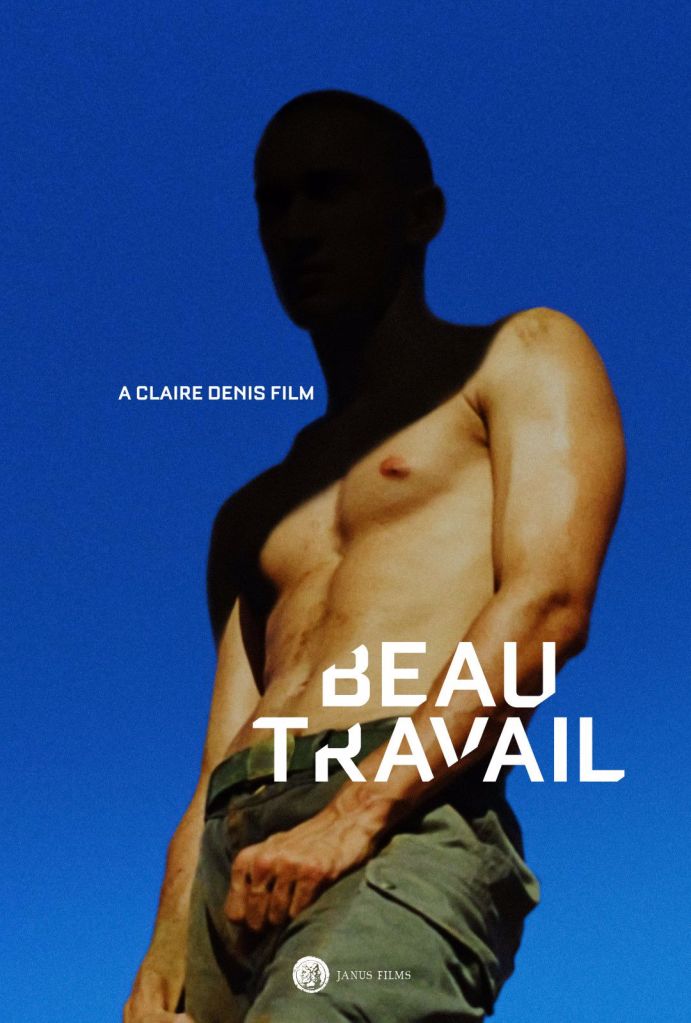

Weekend
Directed by Andrew Haigh
Gay stereotypes in the 2000s were particularly alienating for the gay community, which is what made Weekend so refreshing when it was released in 2011. Telling the story of two gay men who turn a one-night stand into something of a love story. Weekend shows the nuance of gay life, with one of the men being comfortably queer and the other dealing with his own internalized homophobia. It’s a beautiful story about desire and connection, and a modern take on Brief Encounter. When I was coming to terms with my own sexuality, Weekend helped me find my own kind of courage. It’s a film I hold close to my heart, a beautiful love story for our times.
A Deeper Dive
Haigh’s quiet sensitivity is evident in all of his film work, with his earlier Greek Pete sowing the seeds that Weekend would ultimately reap more successfully. Haigh is perhaps best known in the United States for his work on the TV series Looking, which charts the lives of gay men in San Francisco. While the series’ two seasons were up-and-down, the concluding film is tremendous.
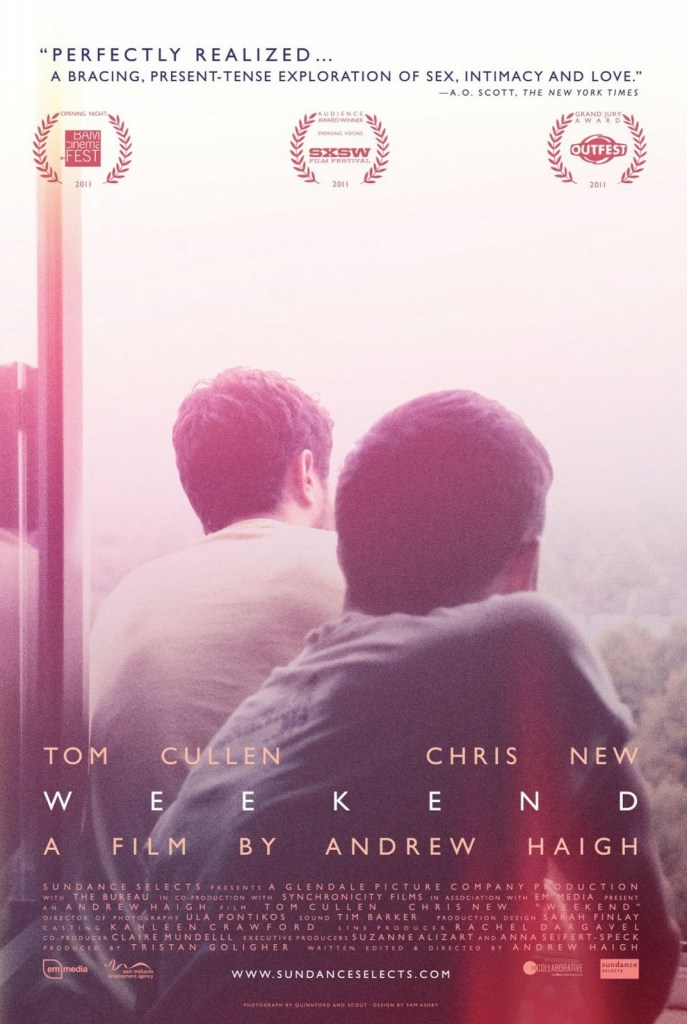

Fire Island
Directed by Andrew Ahn
2010s superhero movies killed the romantic comedy genre, as studios stopped financing smaller films in favor of finding the next Marvel Cinematic Universe. Luckily, there’s been something of a resurgence over the past few years, and rom-coms told from the perspectives of minority and marginalized characters and storytellers have become more common. Fire Island is an interpretation of the classic novel Pride & Prejudice, following a group of queer friends during a week on Fire Island Pines on Long Island. With pure comedy and a huge heart, Fire Island is able to take a genre previously dominated by the heterosexual perspective and make it all its own. It’s a film that can be enjoyed by everyone, but that also features plentiful in-jokes and storylines that are specific to queer audiences. It’s the perfect movie for Pride Month, just pure gay fun.
A Deeper Dive
As I eluded to, gay romantic comedies are having a bit of a renaissance right now. Love, Simon and Bros are both similar to Fire Island in that they all can appeal to a broad audience, but both are working on very different registers than Fire Island is. Regardless, both are more than worth your time.
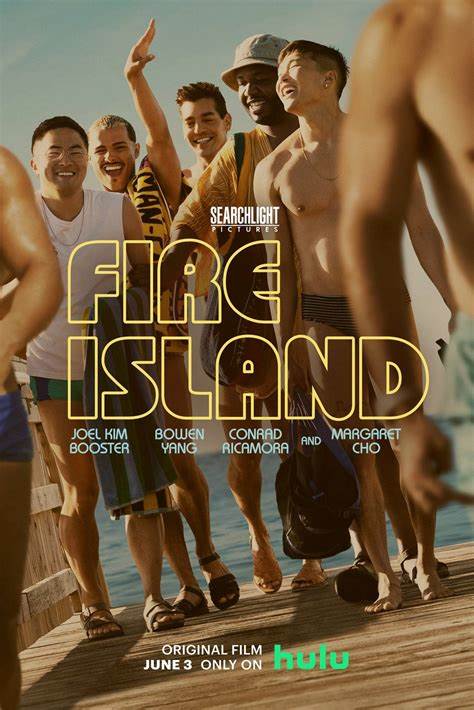

Paris is Burning
Directed by Jennie Livingston
There are a few pieces of queer art that are considered foundational by the entire community, and Paris is Burning is one of them. Following the lives of different members of New York City’s Ballroom community, the cultural impact of Paris is Burning cannot be overstated. It introduced the world and Madonna to voguing, realness, shade, and did more to promote reading than an army of kindergarten teachers ever could. Paris is Burning is a luminous profile of queer art and expression, showcasing the importance of community while not shying away from the harsh realities faced by Black and Latinx queer people in a world that was – and still is – afraid of their power.
A Deeper Dive
The 1968 documentary The Queen also features members of the House of LaBeija, including Crystal LaBeija giving an all-time great sore loser monologue. In the realm of television, the series Pose takes clear inspiration from Paris is Burning and presents a glossy dramatization of Ball Culture that is very entertaining.


Matthias & Maxime
Directed by Xavier Dolan
Xavier Dolan has been making queer films for his entire career, and his most recent film is one of his best, a tender exploration of the line between friendship and love. Matthias and Maxime are best friends who share an on-camera kiss for their friend’s film project. This kiss shakes the foundation of their friendship and what they thought they knew about themselves. Dolan doesn’t shy away from portraying the hurt and confusion of this situation, with Matthias (who is currently in a committed relationship with a woman) lashing out at his best friend as each tries to process what their feelings mean. This film is Dolan’s most pared back in terms of visual theatrics, lending a groundedness to the whole thing that feels real and sincere. This is not an easy love story, the moments of elation are often countered by moments of frustration. What it provides to its audience, however, is a realistic and soaring portrayal of how this would play out in reality. I love this film so much that I frequently watch a YouTube compilation edit like I’m a 13-year-old shipping characters from Riverdale.
A Deeper Dive
Dolan is the gay wunderkind of our time, and many of his films explore queer themes. I Killed My Mother, Heartbeats, Tom at the Farm, and Laurence Anyways all have Dolan’s signature visual panache and many include autobiographical elements.


BPM (Beats Per Minute)
Directed by Robin Campillo
Can it be? Our first AIDS movie? Yes, we’re finally embracing the age-old trope of killing our gays. I don’t love an AIDS movie, but I am OBSESSED with this one. BPM is a French film that showcases the turbulent work of ACT UP Paris, an activist group fighting for public acknowledgement of and support for those fighting with HIV/AIDS. What separates this film from the many, many, many melodramatic AIDS dramas is its commitment to realism and showing the joy that remained a force in the lives of those with the disease. Intercutting scenes of protest with scenes of the same characters dancing in gay clubs (to Bronski Beat, natch), BPM shows the strength, resilience, and unbreakable spirit of the queer community. It’s the greatest AIDS film ever made, and quite possibly the best film about gay life, too.
Fun fact: BPM premiered at the 2017 Cannes Film Festival where it won the Grand Prix (effectively second prize.) Many had assumed that the jury, headed by legendary queer filmmaker Pedro Almodóvar, would award the film the top prize of the Palme d’Or, and Almodóvar pretty openly said afterwards that there was one member of the jury who blocked that exact thing from happening: Will Smith.
A Deeper Dive
There are few films that tackle AIDS activism as bluntly and effectively as BPM, but there’s still a lot of worthwhile art out there to explore. The documentary How To Survive a Plague was only cut from this list because BPM tells a near-identical story, but it’s so good. Additionally, films like The Normal Heart, Philadelphia, and the TV series It’s a Sin tell stories from this same time period very well, even if Philadelphia feels ever-so-slightly dated. Finally, for a different take on gay activism, the 2014 British film Pride is a crowd-pleaser without feeling cloying.


All About My Mother
Directed by Pedro Almodóvar
Speaking of which, no list of queer films would be complete without at least one title from the King of Queer Cinema himself (and my personal favorite director), Pedro Almodóvar. The man, the myth, the legend. His filmography is filled to the brim with iconic films, and 1999’s All About My Mother kicked off the greatest four-film run in the history of cinema (spare me with the Francis Ford Coppola retorts). I actually struggled with which film of his to highlight, but I went with All About My Mother because it is the most representative of his oeuvre. Pedro tells stories about women and queer people, and All About My Mother is a vibrant tapestry of exactly that. It’s also the film that anointed Almodóvar as a major international filmmaker, with each of his subsequent films in the 25 years since being heralded as a major event. It’s a perfect film about found family and the unbreakble strength of the queer community.
A Deeper Dive
Oh, you want more Pedro? Well you’ve come to the right place! I would start with his post-All About My Mother masterpieces: Talk to Her (Oscar winner for Best Original Screenplay), Bad Education (his darkest film, about child sexual abuse in the Catholic Church), and Volver (his warmest film and a love letter to his two muses, Carmen Maura and Penélope Cruz). His 80s period is Almodóvar at his queerest and most transgressive, with Matador, Law of Desire, Women on the Verge of a Nervous Breakdown, and Tie Me Up! Tie Me Down! being the highlights of that period. Finally, his two most recent films could also serve as career-defining masterpieces (the man is unstoppable): the semi-autobiographical Pain and Glory, which reunited him with frequent player Antonio Banderas, and Parallel Mothers with Penélope Cruz. Both films received multiple Oscar nominations, including lead acting nominations for their two stars, Banderas and Cruz.

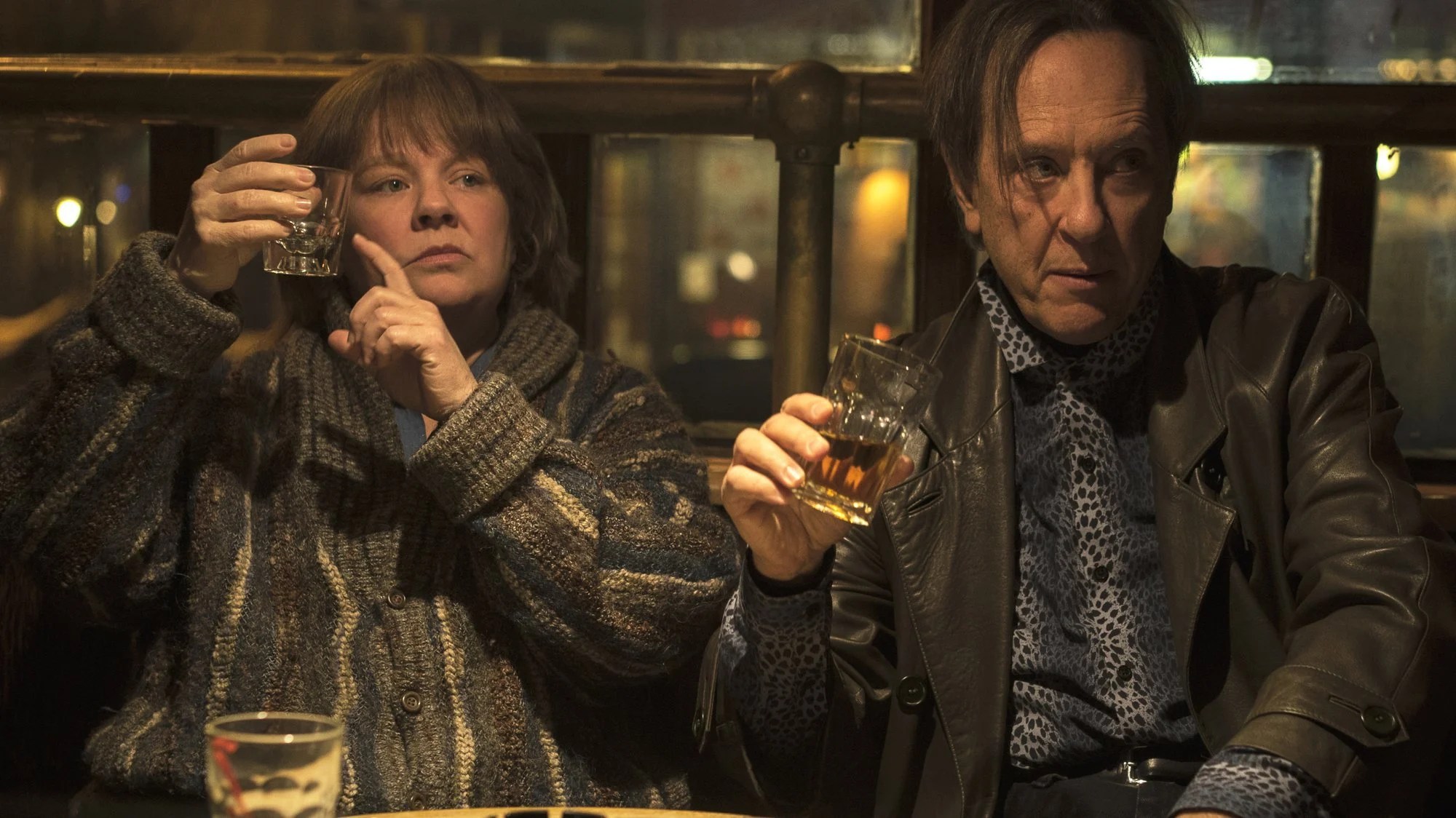
Can You Ever Forgive Me?
Directed by Marielle Heller
As the old adage goes, “Be gay, do crime.” Can You Ever Forgive Me?, adapted from the memoir of Lee Israel, weaves an unbelievable tale of her time in the 1990s forging literary letters and making pretty sums of money along the way. What is refreshing about this film is that it is less a queer movie and more a movie about queer people, the kind of story that in years past would’ve been straight-washed. Israel, played by a perfectly cast Melissa McCarthy, is a thorny, middle-aged lesbian who finds herself in an unlikely friendship with a similarly thorny gay man, who later becomes her accomplice. This film is wonderfully cozy, bathing 90s New York City in warm lighting and a jazz score, but it also shows how challenging things can be for an artist living on the margins. By the end, you’re almost cheering for Israel to get out of this unscathed. It’s a movie I enjoyed on first watch, and have fallen deeply in love with on subsequent rewatches.

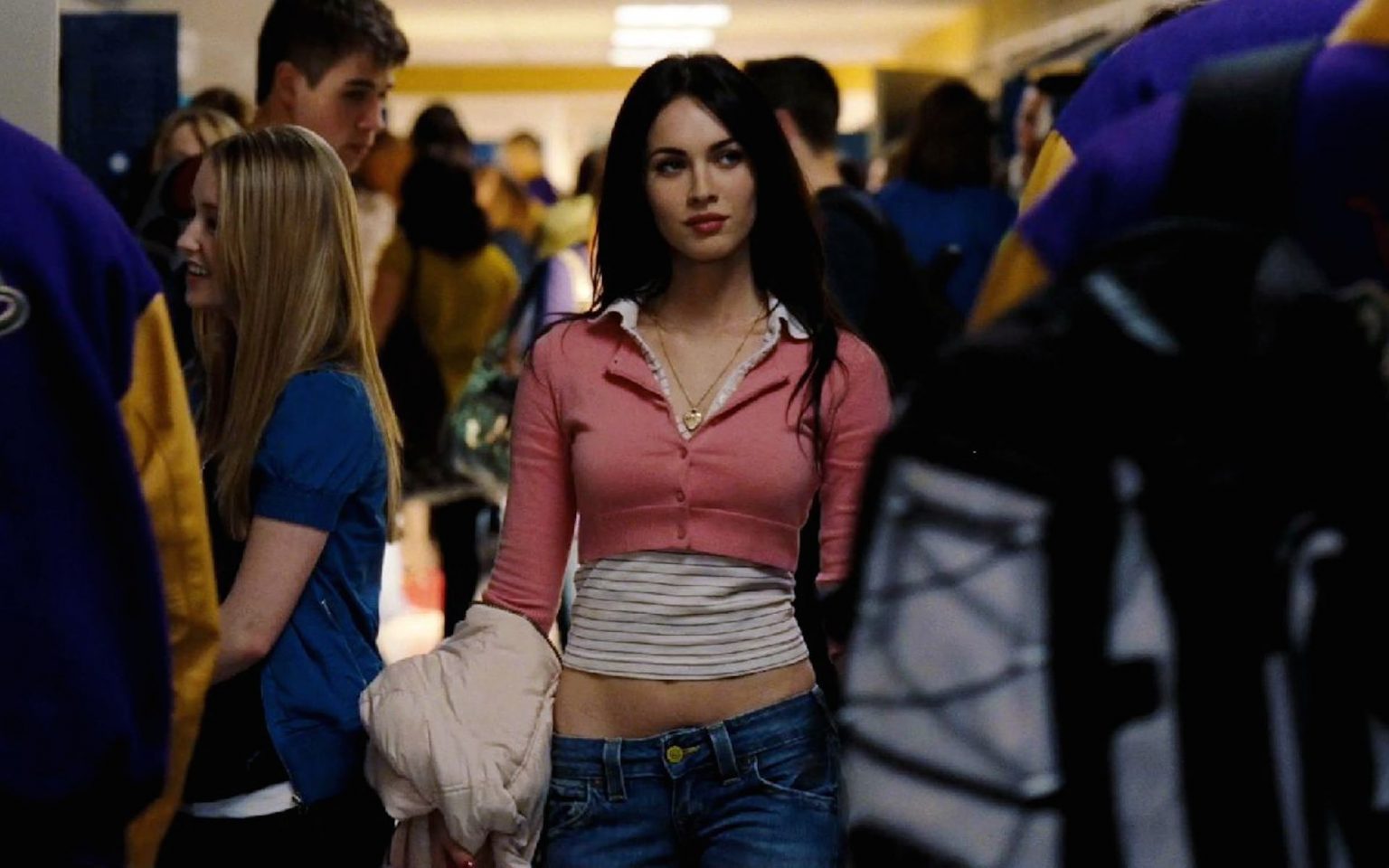
Jennifer’s Body
Directed by Karyn Kusama
“You’re killing people!”
“No, I’m killing boys.“
One of my biggest flexes today is that I have been a day-one stan of Jennifer’s Body, a film that was ripped to shreds by critics and audiences when it was released in 2009, but has since been resurrected and reappraised, and is now viewed as a stone cold classic and one of the best examples of queer horror ever made. It is chaotic bisexual cinema! It’s a nuanced story of female friendship! It is a take down of rape culture and the sexualization of young women! It is an untouchably funny film with A+ performances by Megan Fox and Amanda Seyfried that I am so happy is finally getting its flowers. I wish more films had the nerve to spit in the face of the straight patriarchy like this one does. We live in a better world because Jennifer’s Body is in it.
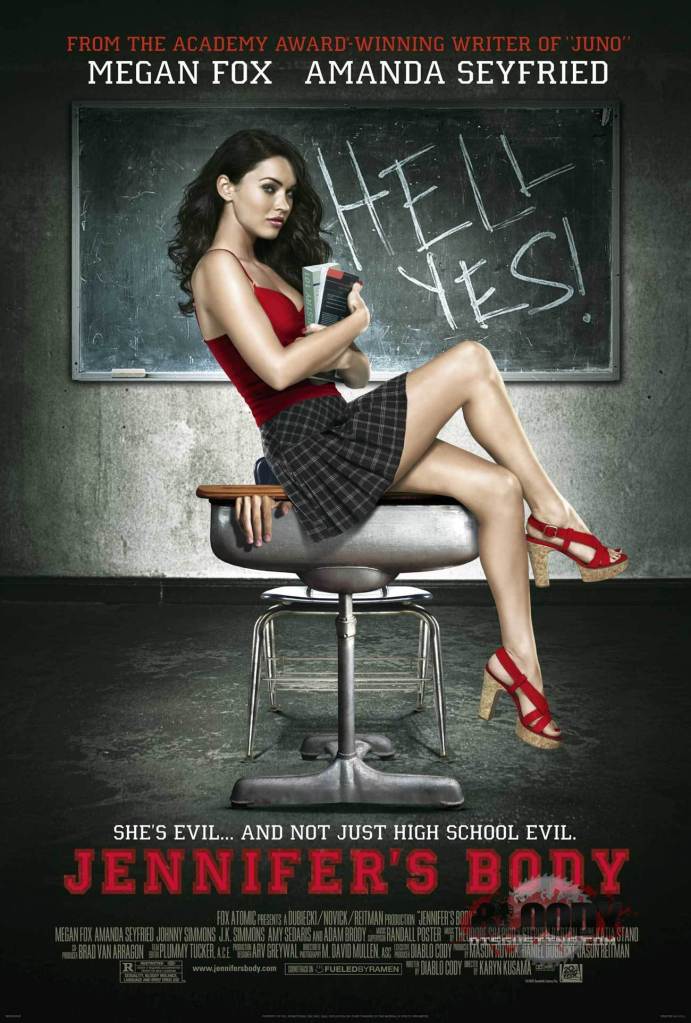
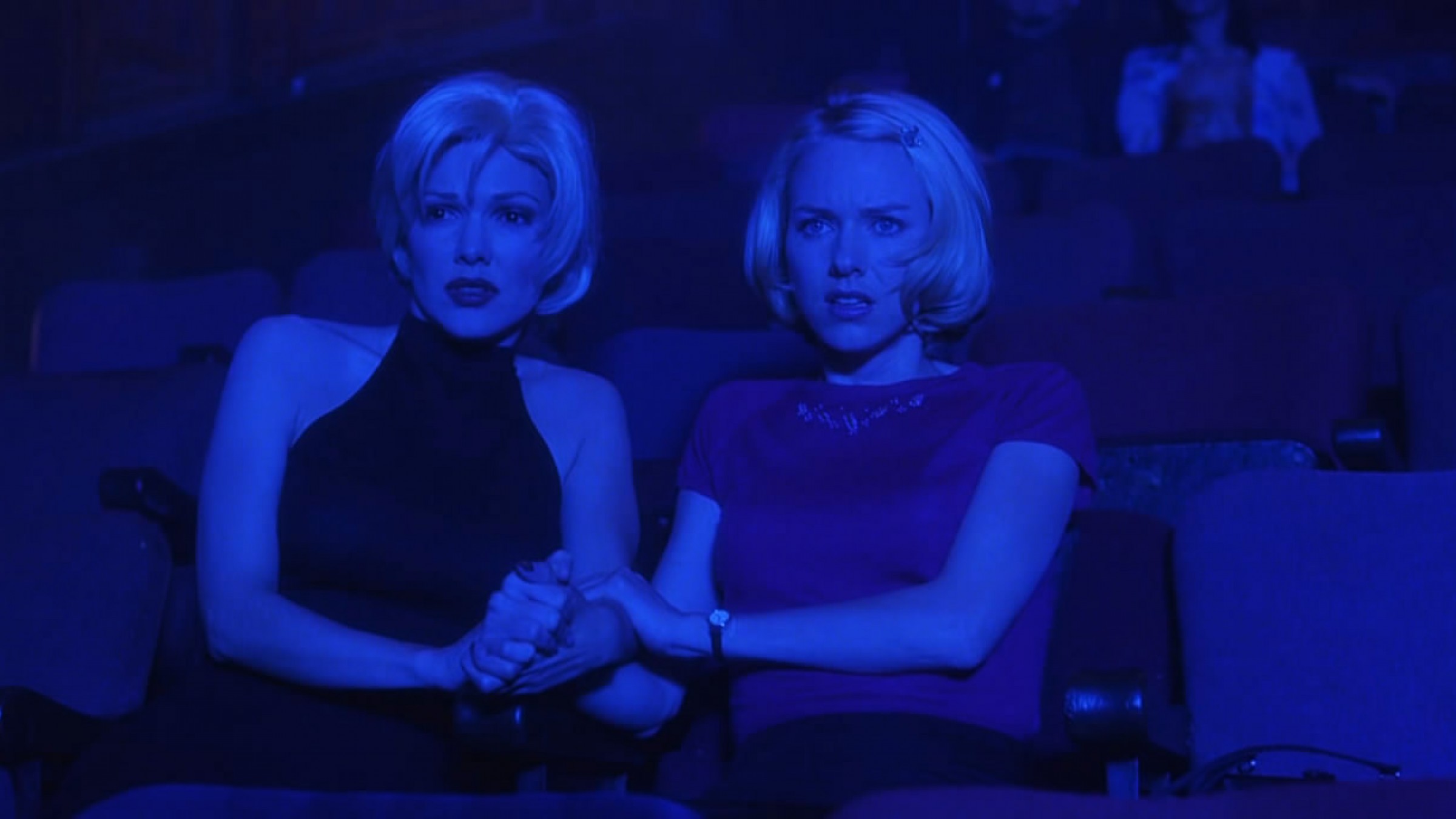
Mulholland Drive
Directed by David Lynch
Oh god, where do I even begin with effin’ Mulholland Drive? I am not brave enough, nor smart enough, to attempt a sufficient plot summary of this puzzle box film, the masterpiece from a master, David Lynch. It’s a film that defies explanation and comparison, one that features the beginnings of a beautiful, dreamy queer relationship before literally opening a box and unleashing the toxicity of compulsory heterosexuality onto our heroines. Kind of. Like I said, it’s hard to quantify what is and isn’t happening in Lynch’s vision of Hollywood, and it’s a testament to his one-of-a-kind talent that this modern classic works.


Happy Together
Directed by Wong Kar-Wai
The order of this is mostly random, so it’s a funny coincidence that Happy Together and Mulholland Drive form a double bill of toxic queer relationships. However, it is deeply unfair to reduce this beautiful film to being just about a toxic relationship. Fai and Po-Wing are tumultuous lovers who break up while visiting Argentina, and both find themselves unable to return home to Hong Kong. Over the course of the film they reconcile, fight, break up, and repeat. Happy Together was groundbreaking at the time of its release for showcasing a realistic queer relationship, complete with the same problems all couples experience from time to time. Oh by the way, the whole thing looks so damn gorgeous, a hallmark of the cinema of Wong Kar-Wai.
A Deeper Dive
Here’s where I tell you to watch In the Mood for Love, the greatest film directed by Wong Kar-Wai and (I say this a lot, though this time I am being definitive) possibly the greatest film ever made. It’s a film that is not really queer, but it’s about forbidden love and longing, famously the queerest feeling there is.
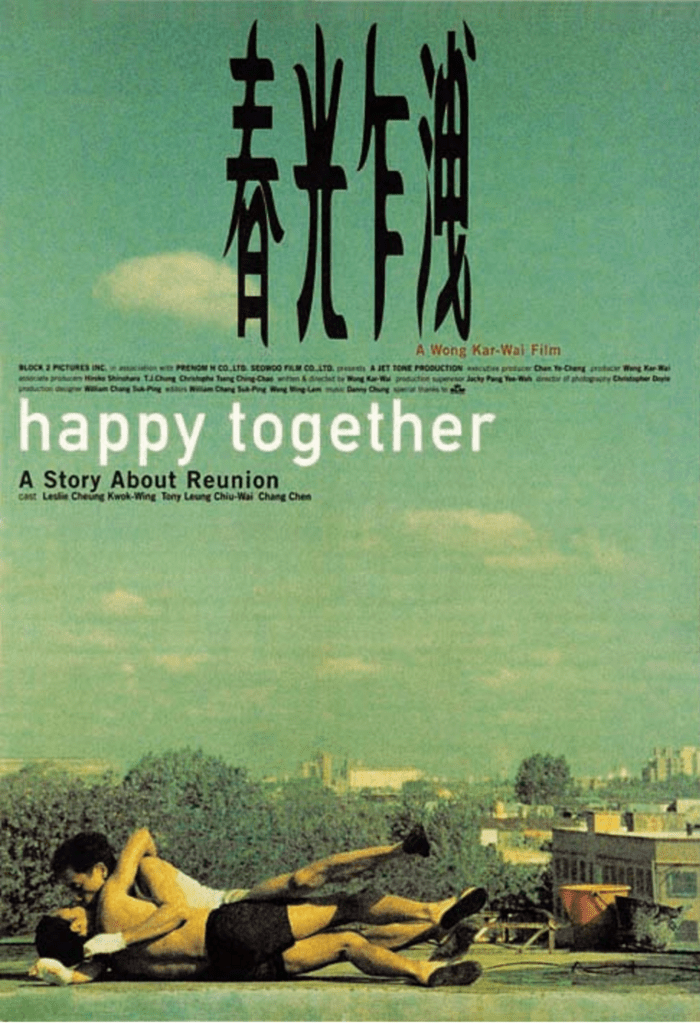

Stranger by the Lake
Directed by Alain Guiraudie
I’m probably going to get in trouble for this one, but I don’t care, it’s Pride Month! Anyways, Stranger By the Lake is about cruising, the… how to explain this as succinctly as possible… act of going to a public place (a beach, the woods, a park, a public restroom, a parking lot) and hooking up with strangers. That’s a reductive explanation, but the title makes contextual sense now, doesn’t it? The more you know! Stranger By the Lake is a thriller about desire, as our main character falls in lust with a man who may or may not be a serial killer. This film is wondrously erotic, with bountiful full-frontal nudity and unsimulated interactions between our characters. It’s thrilling yet languid, elegant, funny, deeply gay, all of it. It’s just not family friendly!


Pink Flamingos
Directed by John Waters
I’ve already gone long on Pink Flamingos on this very site, so I will spare you the specifics of this film. I just want to take another moment to marvel at this film’s very existence, released at a time when queerness was still widely unaccepted in this country. This film is very queer, and it’s also disgusting, revolting, hilarious, and joyful. Queer people have expressed themselves for centuries through transgressive art and Pink Flamingos is a piece of that grand tradition.
A Deeper Dive
I mean, pick any John Waters movie and you will not be at a loss for queer content. Female Trouble is also regarded as one of his best films, and it has also received the same Criterion Collection treatment as Pink Flamingos, as have Polyester and Multiple Maniacs. If you’re looking for more accessible John Waters fare, his original Hairspray film is really so much fun (the 2007 film version of the musical also retains some of the Waters-ness), as is Serial Mom.
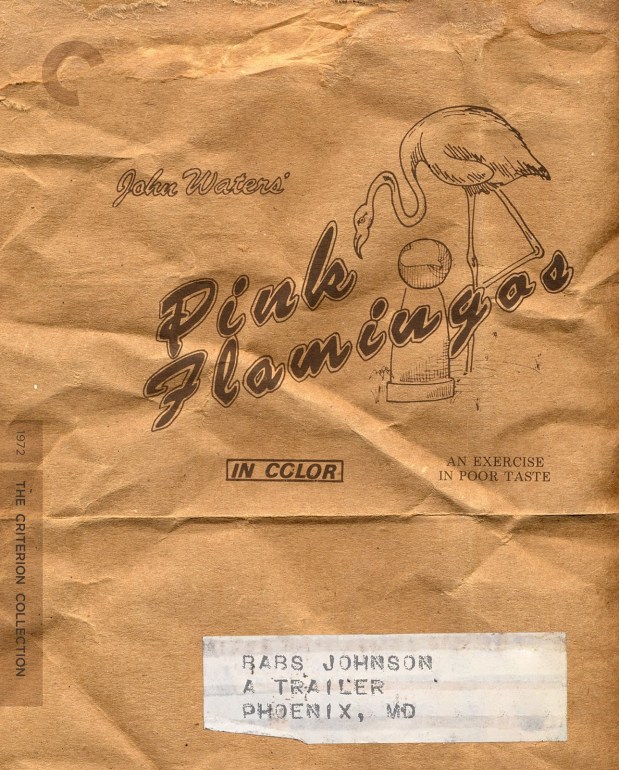
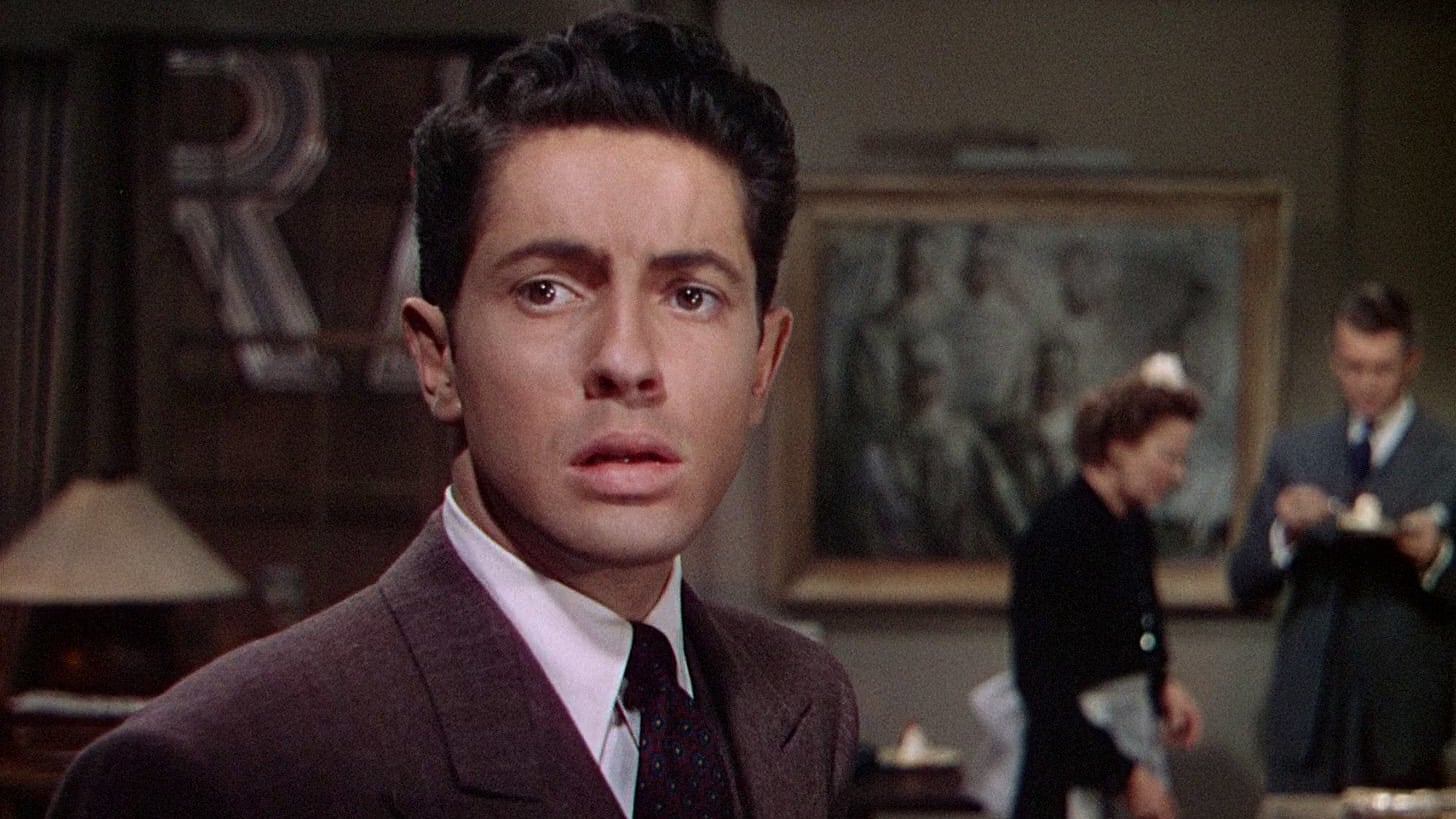
Rope
Directed by Alfred Hitchcock
Alfred Hitchcock is one of history’s greatest directors, and his influence on queer cinema cannot be overstated. You can read queer subtext in a number of Hitchcock’s films, but the high faggotry on display in Rope makes it one of the gayest movies ever made without ever explicitly saying it. Two young men, coded by Hitchcock as lovers, murder their former prep school classmate and hide his body in a trunk in the center of their apartment. What happens next will dispel any doubts of their homosexuality: they host a dinner party! Daddy Jimmy Stewart (an actor so helplessly heterosexual that he agreed to do WHAT HE’S DOING in this film without realizing a damn thing) arrives at this party and and we are off to the gay races – a parade, if you will. The tension of the film builds as the players dance around a secret that hides in plain sight. I mean, there’s a pivotal plot point surrounding a monogrammed hat, and Jimmy Stewart saying he prefers “long ones” followed by a pregnant pause! Gay! Hitchcock’s films are built for pure entertainment, but watching Rope through a queer lens adds delicious layers of campy enjoyment throughout.
A Deeper Dive
Many, and I mean MANY, of Hitchcock’s films include queer subtext, but the trio of Rebecca, Psycho, and Strangers on a Train all have deep queer subtext and they’re each quite good.

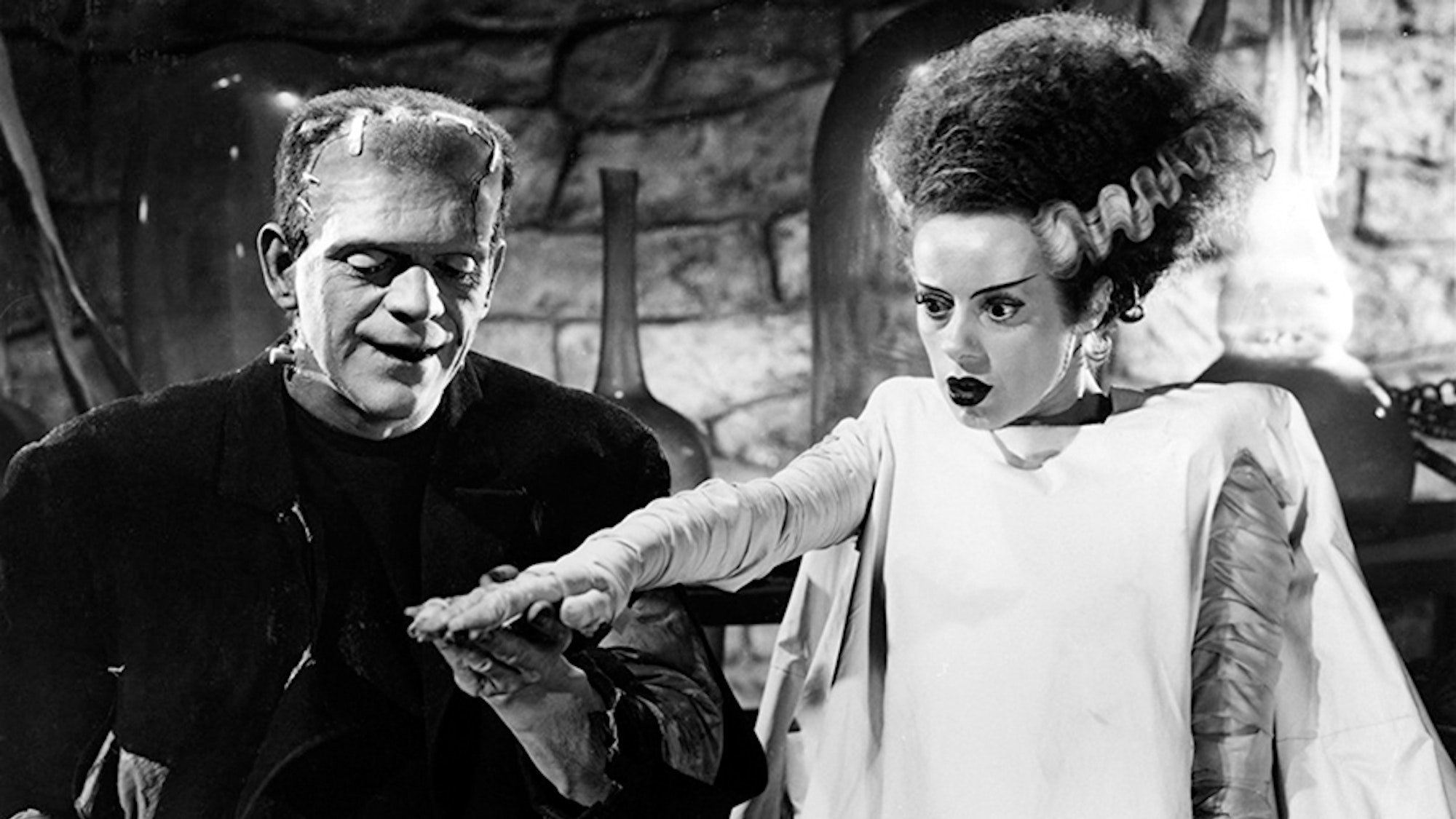
Bride of Frankenstein
Directed by James Whale
A Universal Monster movie needed to appear on this list, so why choose The Bride of Frankenstein, possibly the most heterosexual of them all – at least in plot? Well, that’s because it is campy as all hell. Director James Whale was an out gay man, a rarity in that era of Hollywood, and had a hand in bringing a number of the classic monsters to the screen. Bride of Frankenstein is his masterpiece, and arguably the best film of all the Universal Monster movies. It’s bursting at the seams with imagination, and sets the table for decades of the “sissy” villain, with Doctor Pretorius playing an over-the-top caricature of a gay man and informing the characterization of basically every Disney villain for the next 70 years. Bride of Frankenstein is an absolute romp that is still impressive almost 90 years later.
A Deeper Dive
The beauty of monster movies is that basically all of them can be read as queer allegory, and many of the Universal Monsters are layered with queer subtext. The Wolf Man is about repressed gay desire, Frankenstein is a trans allegory, Dracula is overflowing with bisexuality and he’s a theatrical queen, the monster in The Invisible Man is played so flaming that it falls into the “Be Gay, Do Crimes” canon, and The Creature from the Black Lagoon is about queer love. Heck, even The Phantom of the Opera is about being obsessed with a female singer, gay behavior!

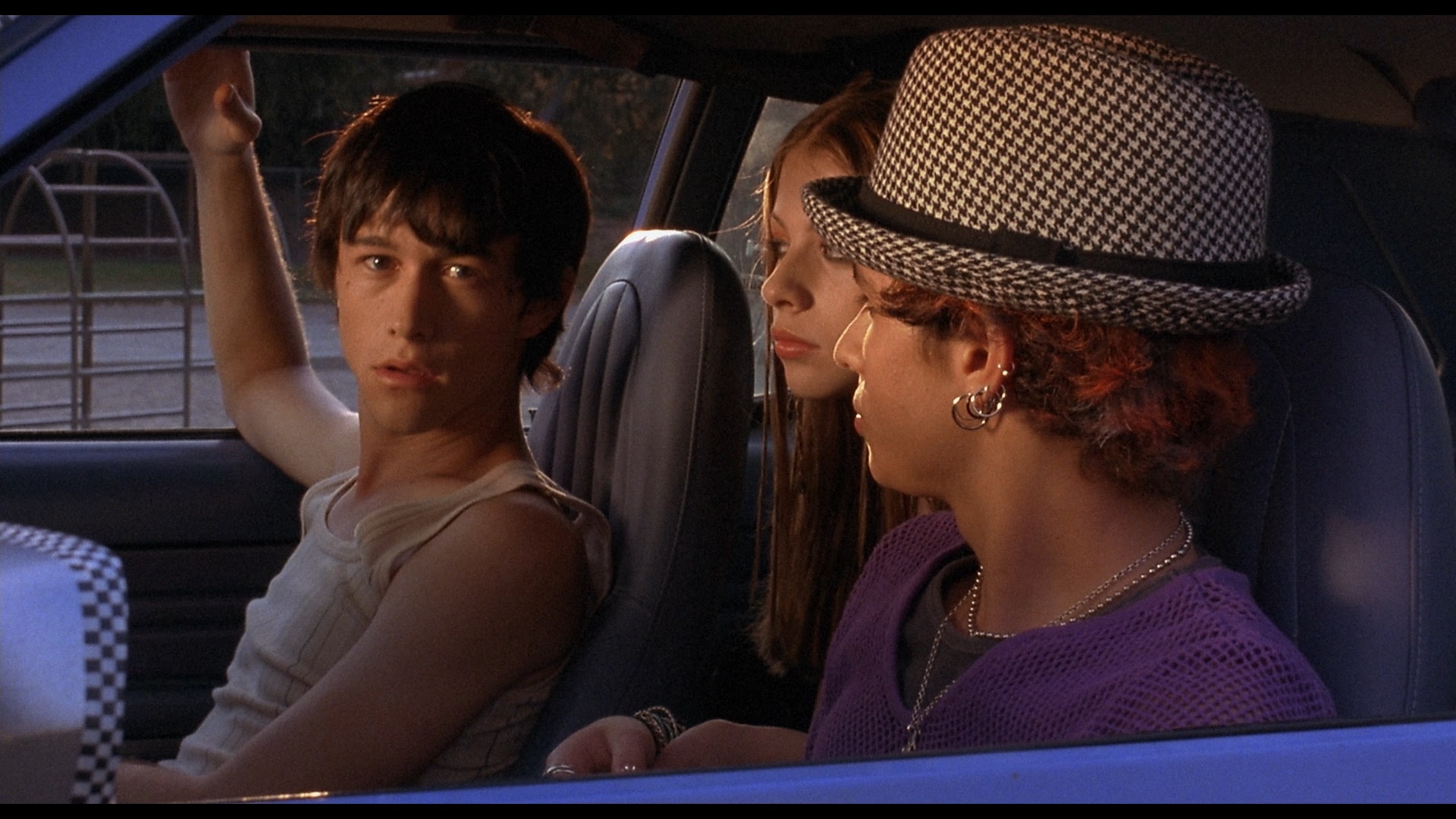
Mysterious Skin
Directed by Gregg Araki
Gregg Araki is a national treasure, and he works in a cinematic language all his own. Mysterious Skin, his 2004 masterpiece, is a story of the trauma of child sexual abuse. A few of you probably read that sentence and are immediately jumping to the next entry. Sorry, but it’s a hard subject to beat around the bush with, and it would be a disservice to the film to do so. What is so striking about this film is Araki’s sensitivity and his ability to convey both violence and innocence in his characters. He’s a transgressive pioneer, and yet he dials back some of his more showy sensibilities when dealing with this subject matter. He clearly cares so deeply for both of his main characters, and that feeling is pulled out of the audience as well. The film is beloved and embraced by queer people for shining a light on experiences that are unfortunately all too common.
A Deeper Dive
Gregg Araki is a pioneer of the New Queer Cinema, and his Teen Apocalypse Trilogy in the 1990s is foundational for many Gen X queer people. Those films, Totally Fucked Up, The Doom Generation, and Nowhere are so infused with queer sensibilities, even when billed as “A Heterosexual Movie by Gregg Araki” like The Doom Generation is. In recent years, Araki created the TV series Now Apocalypse, an utterly inexplicable and wild show about queerness and the end of the world… sort of.
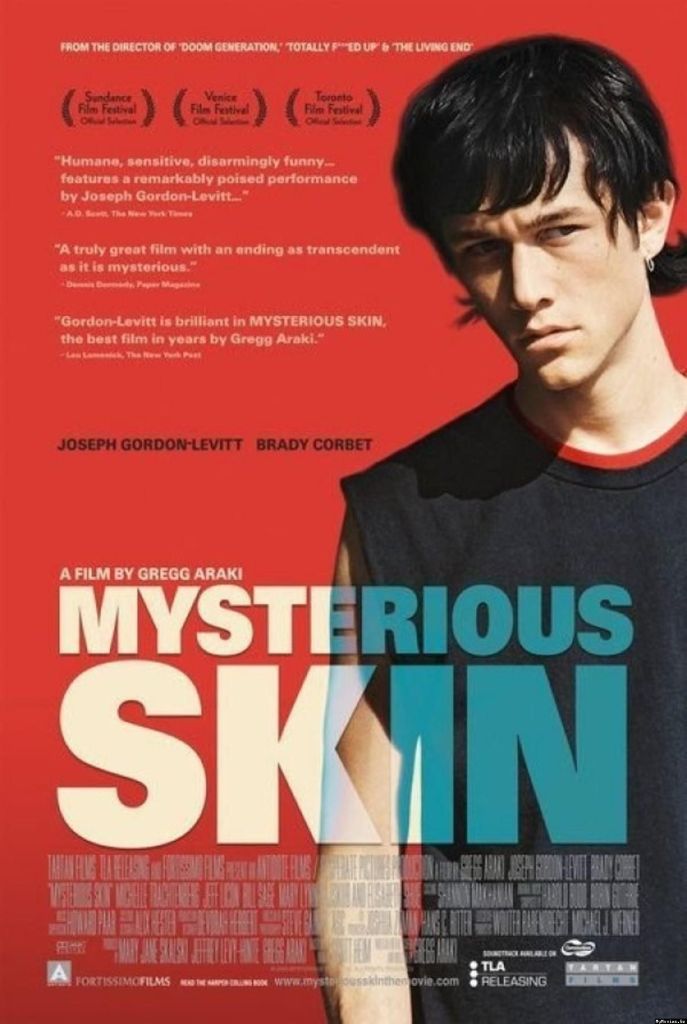

The Times of Harvey Milk
Directed by Rob Epstein
The Times of Harvey Milk is not an obituary. Chronicling the life of Harvey Milk, the first openly gay man elected to public office in California, and his assassination by a colleague in 1978, the film is a panoramic portrait of the fight for equal rights across the country. Milk’s election played a vital role in progress for the gay community, but it didn’t happen overnight. It was the result of years of impassioned community organizing by queer people and other marginalized communities in San Francisco and across the country. Milk was not just a fighter for the queer community, he recognized the need for solidarity and collaboration among oppressed peoples to enact change. The reverberations of Milk’s life and death are still seen in the fights for recognition and freedom being waged in 2023.
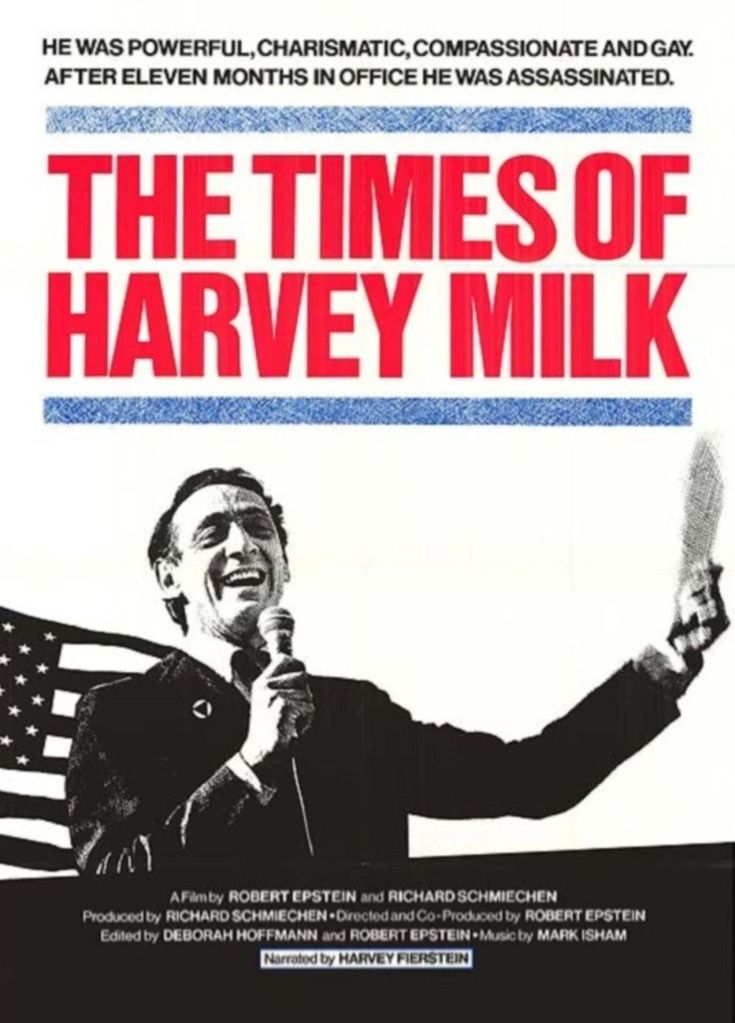

And Then We Danced
Directed by Levan Akin
Let’s talk about Robyn for a bit. The Swedish pop star has been the de facto voice of queer longing since her underground (now firmly mainstream) hit “Dancing on My Own” was released in 2010. Play that song at any gay bar in the world and you will be met with a chorus of queer folks belting out this anthem of unrequited love and loneliness. It’s a song whose themes have resonated with generations of queer people, and has been embraced as an affirmation of queer community.
And Then We Danced is a 2019 Georgian film exploring the life of Merab, a closeted gay dancer training at National Georgian Ensemble. Traditional Georgian dance is hyper-masculine, a show of power and force, and Merab’s precise and delicate movements are viewed as unsuitable for the dance. He forms a connection with another dancer in the company, Irakli, and it grows into romance, leading to a scene of seductive freedom and expression where Merab dances with Irakli to Robyn’s 2016 song “Honey.” Their world, however, is unkind to this relationship, and this is not a love story. It’s a story of self-discovery and making space for yourself in an anti-queer world. The film’s final notes serve as a redefining thesis statement and a mic-drop on the entire concept of masculinity.

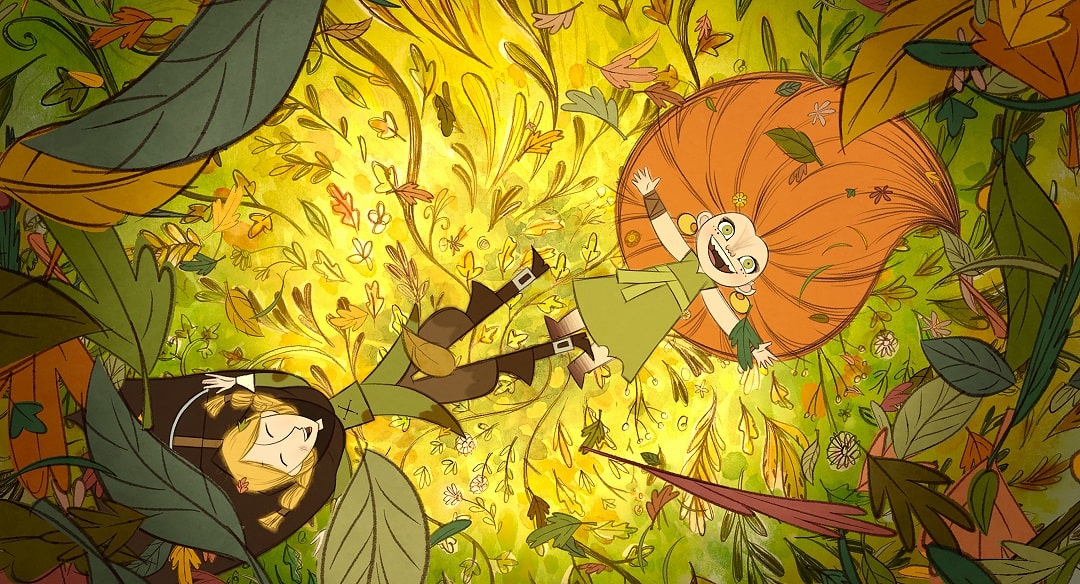
Wolfwalkers
Directed by Tomm Moore & Ross Stewart
As with the Universal Monsters, namely The Wolf Man, any kind of transformation movie inherently reads as queer coming of age. I don’t make the rules. Wolfwalkers, one of the great animated films of this century, shows how easy it can be to tell a beautiful queer story for all ages, something Disney has failed to do even with all of their “explicitly queer” characters. It’s a film about self-discovery, queer joy, found family, and literally fighting a Christo-fascist state that wants to eradicate your kind (it is set in Ireland, after all). It also contains a stunning scene of self-acceptance, where our main character Robyn fully embraces her wolf-ness, and the joy and freedom that come with it.

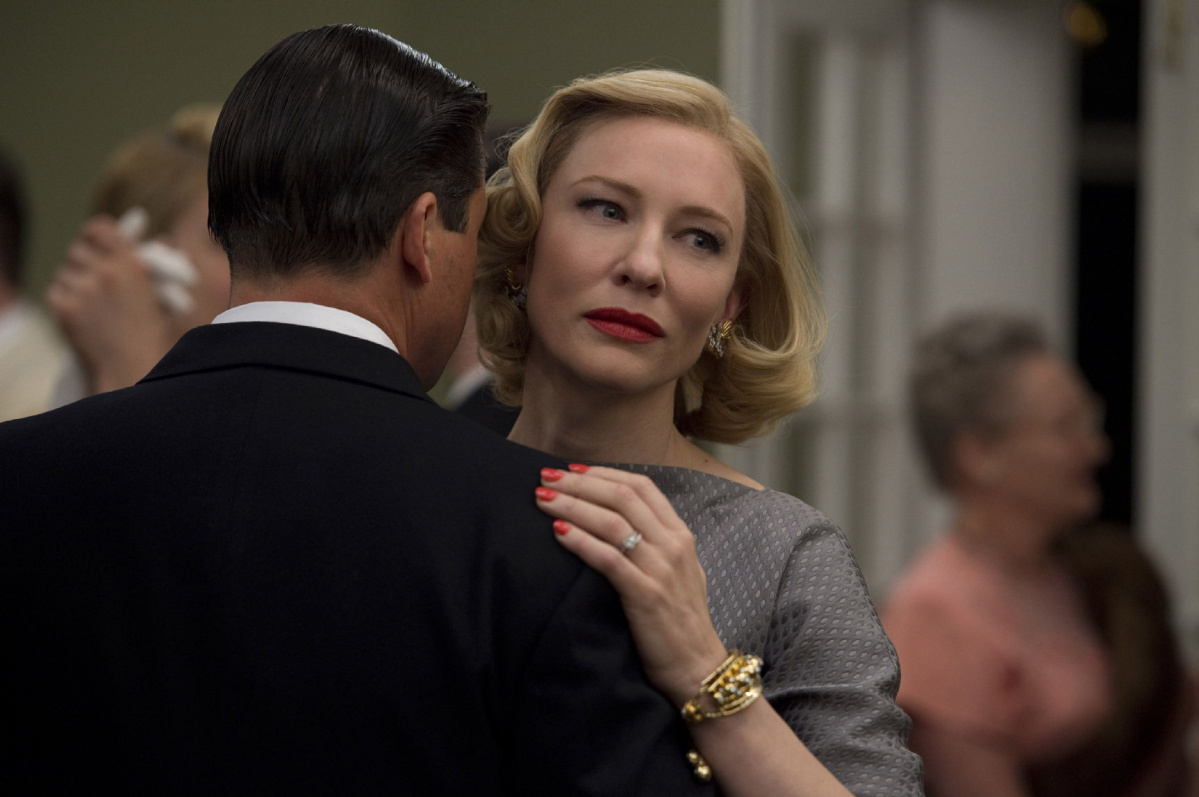
Carol
Directed by Todd Haynes
Todd Haynes belongs to the same New Queer Cinema movement as Gregg Araki, and over the years his films have tackled queer themes both explicitly and implicitly. 2015’s Carol is at once his most straightforward queer film, but perhaps also his most daring. Adapted from the novel The Price of Salt by Patricia Highsmith, the film tells of the forbidden love between Carol (Cate Blanchett) and Therese (Rooney Mara) in the 1950s. Their connection, sparked at the department store where Therese works, is both tender and intense.
The film showcases the quiet community among lesbian women at a time when every expectation for them was the path of a housewife. This community is best seen among Carol and her friend Abby, played by a scene-stealing Sarah Paulson. Their friendship comes with an implication of a romantic past, a past that, instead of adding conflict to the story, adds a fortification for Carol and Therese. This is never more present than in a scene where Carol’s husband Harge visits Abby’s home and demands to know where Carol has gone. Abby is not shaken by Harge’s intensity, her steadfast refusal to answer finally breaking him as he says “I love her.” Abby, almost pitifully, responds with “I can’t help you with that.” This scene, like all of Carol, is a show of absolute defiance.
A Deeper Dive
This feels like a great place to recommend Portrait of a Lady on Fire, another acclaimed sapphic romance directed by the masterful French filmmaker Celine Sciama. I would also be remiss to not recommend more films from the legendary Todd Haynes! Safe is a claustrophobic allegory for AIDS in the Reagan-era, Velvet Goldmine is heavily inspired by the queerness of David Bowie and other glam rockers, Poison is… nuts? But also such an insane burst of queer creativity. Finally, program yourself a double feature with Haynes’s Far From Heaven and the film it was inspired by, Douglas Sirk’s technicolor melodrama All That Heaven Allows. Both are phenomenally queer in their own ways.
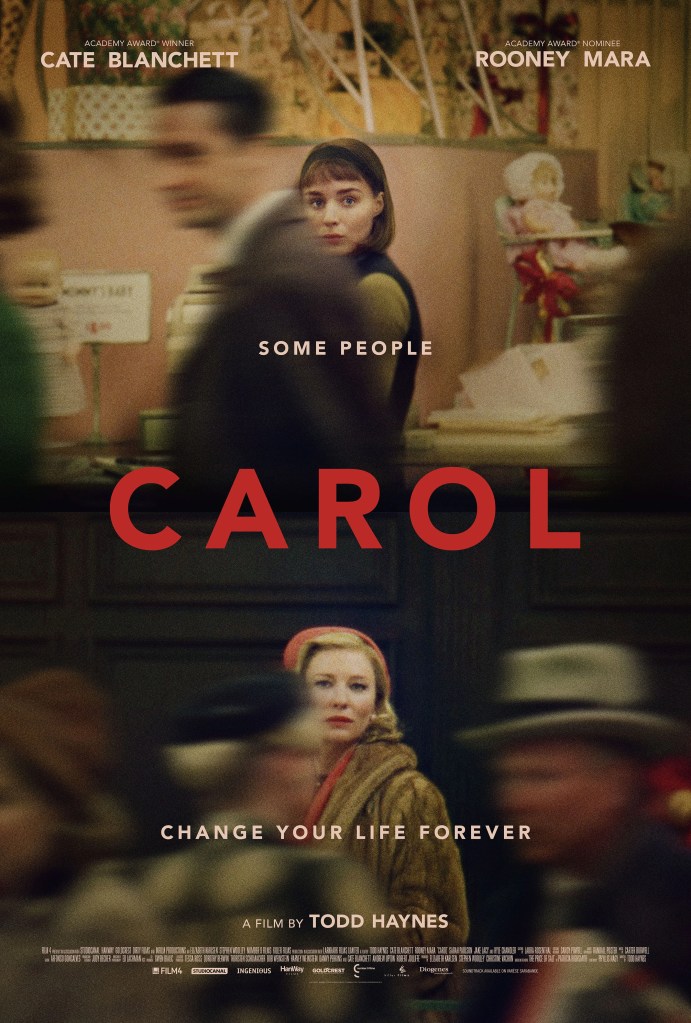
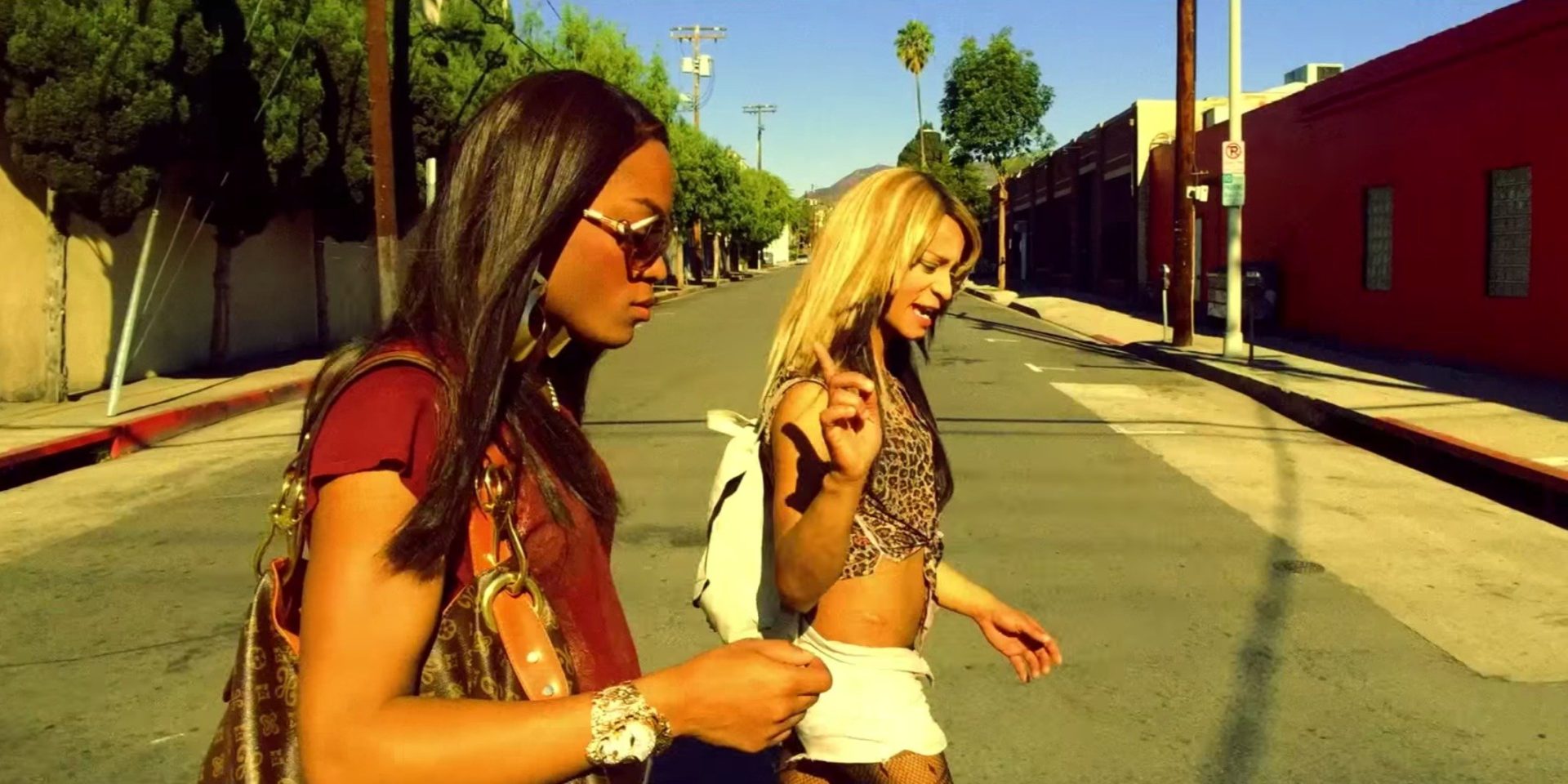
Tangerine
Directed by Sean Baker
Merry Christmas everyone! Tangerine hit screens in 2015 like a hydrogen bomb, a seismic shift-inducing comedy focusing on the lives of two trans women, Sin-Dee Rella and Alexandra, on Christmas Eve in Los Angeles. Sin-Dee is fresh out of jail and discovers that her boyfriend (Chester, a perfect name for this skeeze-ball) has been cheating on her with a cisgender woman, and Sin-Dee is not fucking happy about it. It’s a deeply funny film, and one whose shot-on-an-iPhone visual style adds a sense of immediacy to the tale. Just beneath the After Hours-esque odyssey is a film about creating space for yourself in a world that doesn’t recognize you. Tangerine entered a world where, on the rare occasions trans characters were featured in a mainstream film, they were being played by award-chasing cisgender actors. Tangerine was a shot across the bow for that practice. Mya Taylor won a number of awards for her transcendently funny performance as Alexandra, coming quite close to an Oscar nomination along the way. Taylor, and her co-star Kitana Kiki Rodriguez, paved the way for trans actors to tell their own stories.
A Deeper Dive
The 2020 Netflix documentary Disclosure is an in-depth look at Hollywood’s depiction of trans people on film and in television, featuring interviews with a number of prominent trans actors and advocates.


Moonlight
Directed by Barry Jenkins
What is there to say about Moonlight that hasn’t already been said? The most acclaimed queer film ever made, winner of the Academy Award for Best Picture, Moonlight opened the door for the mainstream embrace of queer storytelling. What gets lost among its massive legacy is often the film itself. It’s such a quiet, beautiful story about a young Black man, Chiron, coming to terms with his queerness during three periods of his life. It’s just a masterpiece, and the final third of the film is really a knockout, following a grown Chiron reconnecting with his childhood friend, Kevin, in a diner. If you haven’t seen or haven’t revisited Moonlight since its Oscar triumph, do yourself a favor and watch it.
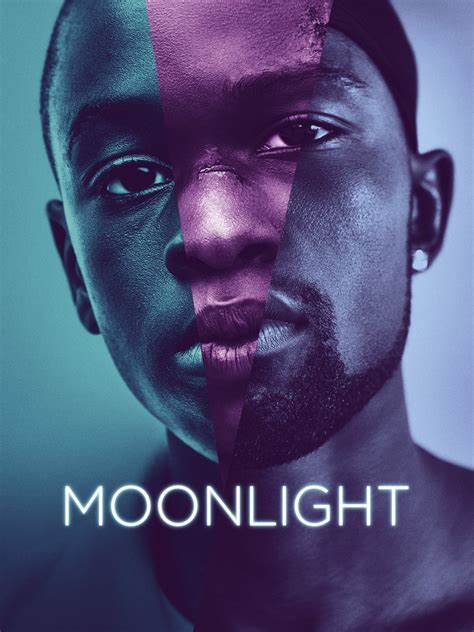

Certain Women
Directed by Kelly Reichardt
Two-thirds of this movie are quite straight (though, Michelle Williams arguing over sandstone for a kitchen renovation feels coded), but the story Kelly Reichardt tells in the final act is a stunning look at queer longing featuring one of the great performances of the 21st century from Lily Gladstone. I love this movie, but its inclusion is partly just so I can talk about Reichardt’s films as a whole. As I mentioned above for Beau Travail, Reichardt tells stories about masculinity so well, showcasing male friendships in her films Old Joy and First Cow. There’s a tenderness and a vulnerability to her male characters in those films that is such a deviation from the norm it can be read as queer. Her films are quiet studies of the human condition, and there is not a single director better at creating thunderous sequences of total silence.
A Deeper Dive
Old Joy! First Cow! Meek’s Cutoff! None of them are explicitly queer, but they all showcase Reichardt’s unique take on masculinity.
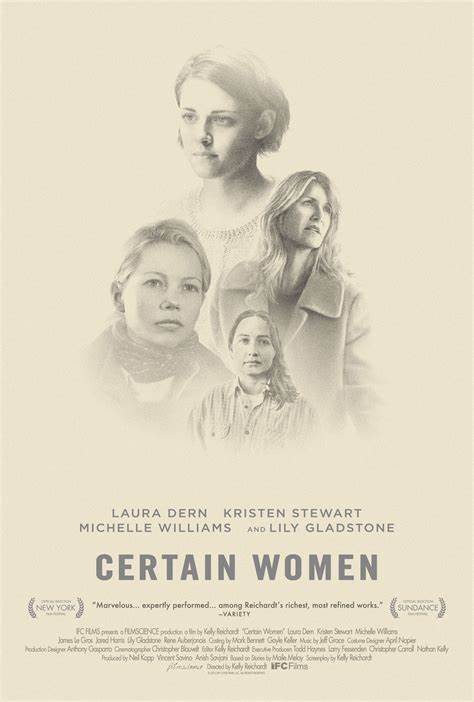

Call Me By Your Name
Directed by Luca Guadagnino
TikTok’s least favorite movie finally makes its appearance on this list. The cultural conversation around this film in recent years has been frustrating to witness, largely because those criticizing it for the age gap between its main characters are not engaging with the movie on its own terms. Perhaps I am just fully in the bag for this movie, but I cannot fathom any reading of this movie as “creepy,” “unsettling,” or “gross,” being made in good faith, and it all seems like disingenuous virtue signaling.
It’s a coming-of-age story about mutual discovery. It’s a film about lust, love, and first heartbreak. It’s a film about summer’s fleeting nature and yet basks in its endlessness. It’s one of the most stunningly photographed films about queer desire ever released, directed by a new queer master and written by one of cinema’s greats, James Ivory (a gay man who basically created an entire subgenre of film with his longtime partner, Ismail Merchant). Perhaps its a film best viewed through older eyes, ones that can see the simple fact that this is all a memory of a feeling and of a time that is already gone.
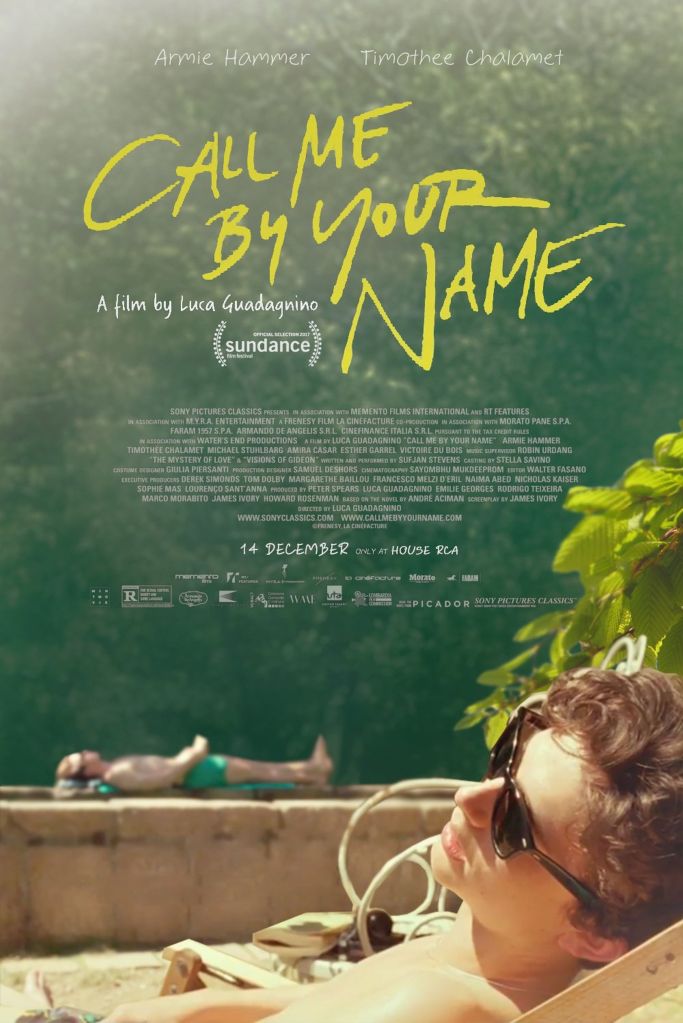

Sense8
Directed by Lily & Lana Wachowski
It feels like cheating to include a television series on my list of my favorite queer films, but I had to make an exception for Sense8. This two-season Netflix drama is a celebration and a showcase of queer identities, connection, and love. The central premise is hard to explain, just know that eight people from across the world have some kind of psychic connection that allows them to feel what the rest are feeling, and allows them to inhabit each other as well. This leads me to my next point: this is maybe the most erotic television show ever made. The first season includes a very famous seven-minute psychic orgy that is indescribable. There are sequences from this series that have left a mark on me, and audiences around the world, that cannot be erased.
A Deeper Dive
The Wachowski sisters each transitioned after they had already been established filmmakers in Hollywood, which makes it fun to view their early works through a queer lens. The Matrix is a well-known trans allegory at this point (though someone should really tell right-wing weirdos who still use “red pilled” to justify their fascist views), Bound is a very influential sapphic neo-noir, and their film masterpiece, Cloud Atlas, is a wonder of ambition and narrative scope.

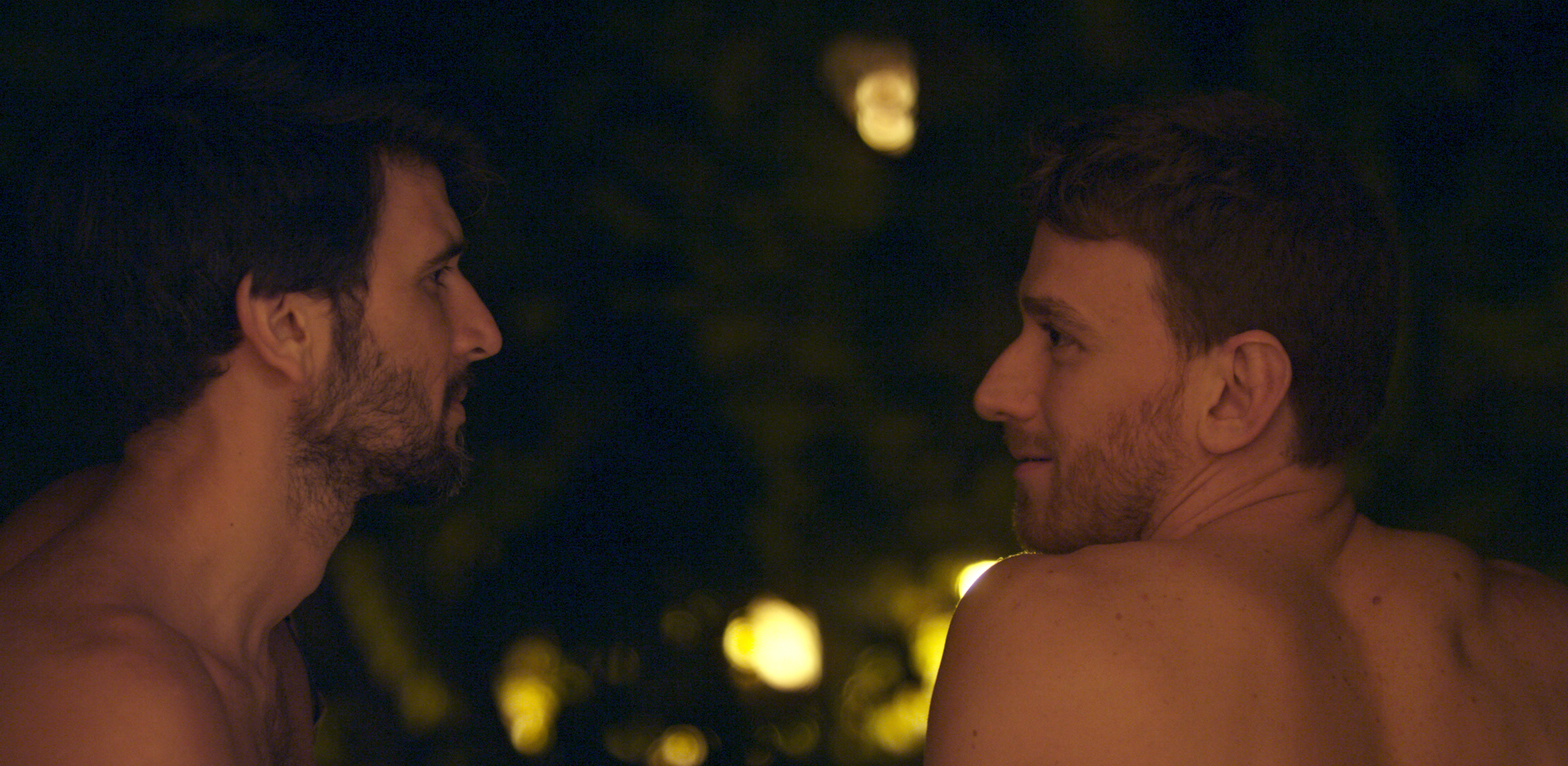
End of the Century
Directed by Lucio Castro
We end with a film that affected me so much I had a small panic attack after finishing it. End of the Century is a 2019 Argentine film about two gay men who have a casual hookup while on vacation. The men soon realize that they had also shared a night together 20 years prior when they were both closeted and too afraid to pursue a relationship with each other. The film is part of a recent school of storytelling which explores destiny and love across time. An extended interlude shows us their first time together with the freedom and joy of connection. Time has aged them, but their connection is just as strong 20 years on, even if the circumstances of their lives will once again cause them to be ships in the night. End of the Century makes a compelling case that an epic love story doesn’t have to span decades. Sometimes it can be just for one night.
A Deeper Dive
There are a few films that explore a similar themes of connection and time. Aftersun and Petite Maman explore these themes as they relate to one’s parents, and both are from queer filmmakers. Also they are both stunning. Your Name, an anime, is queer only in that a lot of queer folks love anime, but ugh it’s so good. Lastly, Of An Age and I Carry You With Me would both make for an on-the-nose triple feature with End of the Century, and both are just great.


You must be logged in to post a comment.